Premium Only Content
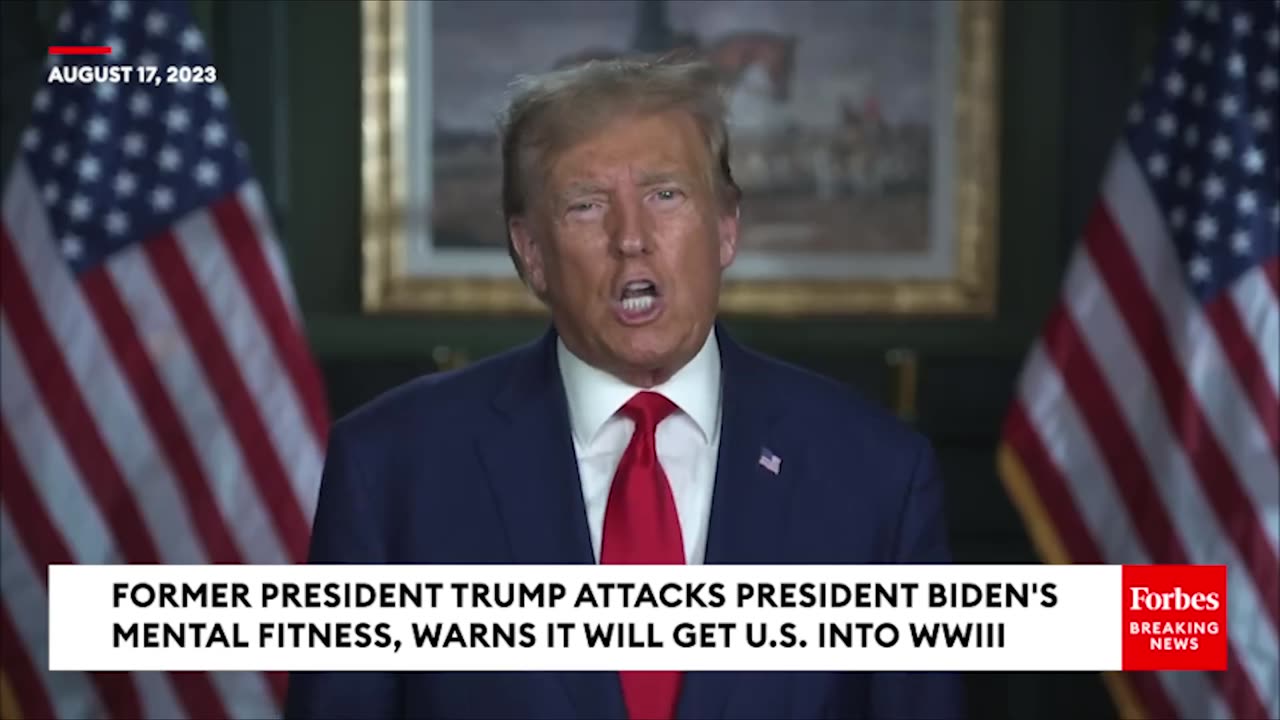
United States President ~ Donald Trump Best Speech News Of the Day
Encyclopedia Britannica
HomeQuizzes & GamesHistory & SocietyScience & TechBiographiesAnimals & NatureGeography & TravelArts & CultureMoneyVideos
Home
Politics, Law & Government
World Leaders
Presidents & Heads of States
History & Society
Donald Trump
president of United States
Also known as: Donald John Trump
Written by
Fact-checked by
Last Updated: Sep 26, 2023 • Article History
Recent News
Sep. 26, 2023, 1:01 AM ET (AP)
New book alleges Trump's ex-chief of staff's suits smelled 'like a bonfire' from burning papers
Sep. 26, 2023, 12:39 AM ET (AP)
Trump says he always had autoworkers' backs. Union leaders say his first-term record shows otherwise
Summary
Read a brief summary of this topic
Donald Trump, in full Donald John Trump, (born June 14, 1946, New York, New York, U.S.), 45th president of the United States (2017–21). Trump was a real estate developer and businessman who owned, managed, or licensed his name to hotels, casinos, golf courses, resorts, and residential properties in the New York City area and around the world. From the 1980s Trump also lent his name to scores of retail ventures—including branded lines of clothing, cologne, food, and furniture—and to Trump University, which offered seminars in real estate education from 2005 to 2010. In the early 21st century his private conglomerate, the Trump Organization, comprised some 500 companies involved in a wide range of businesses, including hotels and resorts, residential properties, merchandise, and entertainment and television. Trump was the third president in U.S. history (after Andrew Johnson in 1868 and Bill Clinton in 1998) to be impeached by the U.S. House of Representatives and the only president to be impeached twice—once (in 2019) for abuse of power and obstruction of Congress in connection with the Ukraine scandal and once (in 2021) for “incitement of insurrection” in connection with the storming of the United States Capitol by a violent mob of Trump supporters as Congress met in joint session to ceremonially count electoral college votes from the 2020 presidential election. Both of Trump’s impeachments ended in his acquittal by the U.S. Senate. Trump lost the 2020 election to former vice president Joe Biden by 306 electoral votes to 232; he lost the popular vote by more than seven million votes.
Donald Trump
Donald Trump
See all media
Category: History & Society
Born: June 14, 1946 (age 77) New York City New York
Title / Office: presidency of the United States of America (2017-2021), United States
Political Affiliation: Republican Party
Notable Works: “Crippled America: How to Make America Great Again” “The America We Deserve” “Trump: The Art of the Deal”
Notable Family Members: spouse Melania Trump daughter Ivanka Trump son Donald Trump, Jr. son of Frederick Christ Trump son of Mary MacLeod husband of Melania Trump (January 22, 2005–present) husband of Marla Maples (December 20, 1993–June 8, 1999) husband of Ivana Trump (April 9, 1977–March 22, 1992) father of Donald Trump, Jr. (b. 1977) father of Ivanka Trump (b. 1981) father of Eric Trump (b. 1984) father of Tiffany Trump (b. 1993) father of Barron Trump (b. 2006) brother of Maryanne Trump Barry brother of Frederick Trump, Jr. brother of Elizabeth Trump Grau brother of Robert Trump
In March 2023 Trump was indicted by a Manhattan grand jury on state criminal charges related to a hush-money payment made in 2016 to adult-film star Stormy Daniels, who claimed to have had an affair with Trump in 2006 (see below Postpresidential activities). The indictment marked the first time in U.S. history that a former president was charged with a crime. In June 2023 Trump was indicted by a grand jury in Miami on federal criminal charges related to his removal of classified documents from the White House upon leaving office and his retention of them at Mar-a-Lago, his resort and residence in Palm Beach, Florida. The indictment marked the first time in U.S. history that a former president was charged with a federal crime. In August 2023 Trump was indicted by a grand jury in Washington, D.C., on federal criminal charges related to his efforts to overturn the 2020 presidential election. The indictment charged him with obstruction of an official proceeding and three counts of conspiracy—conspiracy to obstruct an official proceeding, to defraud the United States, and to impede the free exercise of the right to vote and to have one’s vote counted. Later that month, Trump and 18 of his associates were indicted by a grand jury in Fulton county, Georgia, on criminal charges related to Trump’s efforts to reverse Biden’s electoral victory in the state.
Early life and business career
Donald Trump
Donald Trump
Trump was the fourth of five children of Frederick (Fred) Christ Trump, a successful real estate developer, and Mary MacLeod. Donald’s eldest sister, Maryanne Trump Barry, eventually served as a U.S. district court judge (1983–99) and later as a judge on the U.S. Court of Appeals for the Third Circuit until her retirement in 2011. His elder brother, Frederick, Jr. (Freddy), worked briefly for his father’s business before becoming an airline pilot in the 1960s. Freddy’s alcoholism led to his early death in 1981, at the age of 43.
Beginning in the late 1920s, Fred Trump built hundreds of single-family houses and row houses in the Queens and Brooklyn boroughs of New York City, and from the late 1940s he built thousands of apartment units, mostly in Brooklyn, using federal loan guarantees designed to stimulate the construction of affordable housing. During World War II he also built federally backed housing for naval personnel and shipyard workers in Virginia and Pennsylvania. In 1954 Fred was investigated by the Senate Banking Committee for allegedly abusing the loan-guarantee program by deliberately overestimating the costs of his construction projects to secure larger loans from commercial banks, enabling him to keep the difference between the loan amounts and his actual construction costs. In testimony before the Senate committee in 1954, Fred admitted that he had built the Beach Haven apartment complex in Brooklyn for $3.7 million less than the amount of his government-insured loan. Although he was not charged with any crime, he was thereafter unable to obtain federal loan guarantees. A decade later a New York state investigation found that Fred had used his profit on a state-insured construction loan to build a shopping centre that was entirely his own property. He eventually returned $1.2 million to the state but was thereafter unable to obtain state loan guarantees for residential projects in the Coney Island area of Brooklyn.
President Theodore Roosevelt delivering a speech, September 2, 1902. Teddy Roosevelt.
Britannica Quiz
U.S. Presidential Firsts
key events in the life of Donald Trump
key events in the life of Donald Trump
Donald Trump attended New York Military Academy (1959–64), a private boarding school; Fordham University in the Bronx (1964–66); and the University of Pennsylvania’s Wharton School of Finance and Commerce (1966–68), where he graduated with a bachelor’s degree in economics. In 1968, during the Vietnam War, he secured a diagnosis of bone spurs, which qualified him for a medical exemption from the military draft (he had earlier received four draft deferments for education). Upon his graduation Trump began working full-time for his father’s business, helping to manage its holdings of rental housing, then estimated at between 10,000 and 22,000 units. In 1974 he became president of a conglomeration of Trump-owned corporations and partnerships, which he later named the Trump Organization.
During the 1960s and early 1970s, Trump-owned housing developments in New York City, Cincinnati, Ohio, and Norfolk, Virginia, were the target of several complaints of racial discrimination against African Americans and other minority groups. In 1973 Fred and Donald Trump, along with their company, were sued by the U.S. Justice Department for allegedly violating the Fair Housing Act (1968) in the operation of 39 apartment buildings in New York City. The Trumps initially countersued the Justice Department for $100 million, alleging harm to their reputations. The suit was settled two years later under an agreement that did not require the Trumps to admit guilt.
Get a Britannica Premium subscription and gain access to exclusive content.
In the late 1970s and the 1980s, Donald Trump greatly expanded his father’s business by investing in luxury hotels and residential properties and by shifting its geographic focus to Manhattan and later to Atlantic City, New Jersey. In doing so, he relied heavily on loans, gifts, and other financial assistance from his father, as well as on his father’s political connections in New York City. In 1976 he purchased the decrepit Commodore Hotel near Grand Central Station under a complex profit-sharing agreement with the city that included a 40-year property tax abatement, the first such tax break granted to a commercial property in New York City. Relying on a construction loan guaranteed by his father and the Hyatt Corporation, which became a partner in the project, Trump refurbished the building and reopened it in 1980 as the 1,400-room Grand Hyatt Hotel. In 1983 he opened Trump Tower, an office, retail, and residential complex constructed in partnership with the Equitable Life Assurance Company. The 58-story building on 56th Street and Fifth Avenue eventually contained Trump’s Manhattan residence and the headquarters of the Trump Organization. Other Manhattan properties developed by Trump during the 1980s included the Trump Plaza residential cooperative (1984), the Trump Parc luxury condominium complex (1986), and the 19-story Plaza Hotel (1988), a historic landmark for which Trump paid more than $400 million.
In the 1980s Trump invested heavily in the casino business in Atlantic City, where his properties eventually included Harrah’s at Trump Plaza (1984, later renamed Trump Plaza), Trump’s Castle Casino Resort (1985), and the Trump Taj Mahal (1990), then the largest casino in the world. During that period Trump also purchased the New Jersey Generals, a team in the short-lived U.S. Football League; Mar-a-Lago, a 118-room mansion in Palm Beach, Florida, built in the 1920s by the cereal heiress Marjorie Merriweather Post; a 282-foot yacht, then the world’s second largest, which he named the Trump Princess; and an East Coast air-shuttle service, which he called Trump Shuttle.
In 1977 Trump married Ivana Zelníčková Winklmayr, a Czech model, with whom he had three children—Donald, Jr., Ivanka, and Eric—before the couple divorced in 1992. Their married life, as well as Trump’s business affairs, were a staple of the tabloid press in New York City during the 1980s. Trump married the American actress Marla Maples after she gave birth to Trump’s fourth child, Tiffany, in 1993. Their marriage ended in divorce in 1999. In 2005 Trump married the Slovene model Melania Knauss, and their son, Barron, was born the following year. Melania Trump became only the second foreign-born first lady of the United States upon Trump’s inauguration as president in 2017.
When the U.S. economy fell into recession in 1990, many of Trump’s businesses suffered, and he soon had trouble making payments on his approximately $5 billion debt, some $900 million of which he had personally guaranteed. Under a restructuring agreement with several banks, Trump was forced to surrender his airline, which was taken over by US Airways in 1992; to sell the Trump Princess; to take out second or third mortgages on nearly all of his properties and to reduce his ownership stakes in them; and to commit himself to living on a personal budget of $450,000 a year. Despite those measures, the Trump Taj Mahal declared bankruptcy in 1991, and two other casinos owned by Trump, as well as his Plaza Hotel in New York City, went bankrupt in 1992. Following those setbacks, most major banks refused to do any further business with him. Estimates of Trump’s net worth during this period ranged from $1.7 billion to minus $900 million.
Trump’s fortunes rebounded with the stronger economy of the later 1990s and with the decision of the Frankfurt-based Deutsche Bank AG to establish a presence in the U.S. commercial real estate market. Deutsche Bank extended hundreds of millions of dollars in credit to Trump in the late 1990s and the 2000s for projects including Trump World Tower (2001) in New York and Trump International Hotel and Tower (2009) in Chicago. In the early 1990s Trump had floated a plan to his creditors to convert his Mar-a-Lago estate into a luxury housing development consisting of several smaller mansions, but local opposition led him instead to turn it into a private club, which was opened in 1995. In 1996 Trump partnered with the NBC television network to purchase the Miss Universe Organization, which produced the Miss Universe, Miss USA, and Miss Teen USA beauty pageants. Trump’s casino businesses continued to struggle, however: in 2004 his company Trump Hotels & Casino Resorts filed for bankruptcy after several of its properties accumulated unmanageable debt, and the same company, renamed Trump Entertainment Resorts, went bankrupt again in 2009.
Beginning in the mid-2000s Trump enjoyed an enormous financial windfall from the success of The Apprentice, a reality television series in which he starred that directly earned him nearly $200 million over a 16-year period. The Emmy-nominated show, in each episode of which Trump “fired” one or more contestants competing for a lucrative one-year contract as a Trump employee, further enhanced his reputation as a shrewd businessman and self-made billionaire. In 2008 the show was revamped as The Celebrity Apprentice, which featured news makers and entertainers as contestants.
Trump marketed his name as a brand in numerous other business ventures including Trump Financial, a mortgage company, and the Trump Entrepreneur Initiative (formerly Trump University), an online education company focusing on real estate investment and entrepreneurialism. The latter firm, which ceased operating in 2011, was the target of class-action lawsuits by former students and a separate action by the attorney general of New York state, alleging fraud. After initially denying the allegations, Trump settled the lawsuits for $25 million in November 2016. In 2019, more than two years into his presidency, Trump agreed to pay $2 million in damages and to admit guilt to settle another lawsuit by the attorney general of New York that had accused him of illegally using assets from his charity, the Trump Foundation, to fund his 2016 presidential campaign. As part of the settlement, the Trump Foundation was dissolved.
In 2018 The New York Times published a lengthy investigative report that documented how Fred Trump had regularly transferred vast sums of money, ultimately amounting to hundreds of millions of dollars, to his children by means of strategies that involved tax, securities, and real estate fraud, as well as by legal means. According to the report, Donald was the main beneficiary of the transfers, having received the equivalent (in 2018 dollars) of $413 million by the early 2000s. According to a later report by the Times, based on data from tax returns filed by Trump during an 18-year period starting in 2000, Trump paid no federal taxes in 11 years and only $750 in each of two years, 2016 and 2017. Trump was able to reduce his tax obligations to levels significantly below the average for the wealthiest Americans by claiming massive losses on many of his businesses; by deducting as business expenses costs associated with his residences and his personal aircraft; and by receiving, on the basis of business losses, a tentative refund from the IRS (Internal Revenue Service) of nearly $73 million, which more than covered the federal taxes Trump had paid on income he received from The Apprentice in 2005–08. The refund became the subject of an IRS audit and a legally mandated review by the congressional Joint Committee on Taxation.
Trump was credited as coauthor of a number of books on entrepreneurship and his business career, including Trump: The Art of the Deal (1987), Trump: The Art of the Comeback (1997), Why We Want You to Be Rich (2006), Trump 101: The Way to Success (2006), and Trump Never Give Up: How I Turned My Biggest Challenges into Success (2008).
Presidential election of 2016 of Donald Trump
From the 1980s Trump periodically mused in public about running for president, but those moments were widely dismissed in the press as publicity stunts. In 1999 he switched his voter registration from Republican to the Reform Party and established a presidential exploratory committee. Though he ultimately declined to run in 2000, he published a book that year, The America We Deserve, in which he set forth his socially liberal and economically conservative political views. Trump later rejoined the Republican Party, and he maintained a high public profile during the 2012 presidential election. Although he did not run for office at that time, he gained much attention for repeatedly and falsely claiming that Democratic Pres. Barack Obama was not a natural-born U.S. citizen.
In June 2015 Trump announced that he would be a candidate in the U.S. presidential election of 2016. Pledging to “make America great again,” a slogan advertised widely on the red hats that he and his supporters wore at his rallies—although hated by Trump’s detractors, the red hats were one of the most successful examples of colour branding in marketing history—he promised to create millions of new jobs; to punish American companies that exported jobs overseas; to repeal Obama’s signature legislative achievement, the Affordable Care Act (ACA); to revive the U.S. coal industry; to drastically reduce the influence of lobbyists in Washington, D.C. (“drain the swamp”); to withdraw the United States from the 2015 Paris Agreement on climate change; to impose tariffs on countries that allegedly engaged in trade practices that were unfair to the United States; to construct a wall along the U.S.-Mexico border to prevent illegal immigration from Latin America; and to ban immigration by Muslims. Trump mused about those and other issues in Crippled America: How to Make America Great Again (2015).
Donald Trump
Donald Trump
Donald Trump
Donald Trump
On the campaign trail, Trump quickly established himself as a political outsider, a common strategy among nonincumbent candidates at all levels. In Trump’s case the stance proved popular with conservative voters—especially those in the Tea Party movement—and he frequently topped opinion polls, besting established Republican politicians. However, his campaign was often mired in controversy, much of it of his own making. In speeches and especially via Twitter, a social medium he had used frequently since 2009, Trump regularly made inflammatory remarks, including racist and sexist slurs and insults. Other public comments by Trump, especially those directed at his rivals or detractors in the Republican establishment, were widely criticized for their belligerence, their bullying tone, and their indulgence in juvenile name-calling. Trump’s initial refusal to condemn the Ku Klux Klan after a former Klansman endorsed him also drew sharp criticism, as did his failure to repudiate racist elements among his supporters, including white supremacists and neo-Nazis. While Trump’s comments worried the Republican establishment, his supporters were pleased by his combativeness and his apparent willingness to say whatever came into his mind, a sign of honesty and courage in their estimation.
After a loss in the Iowa caucuses to open up the primary season in February 2016, Trump rebounded by winning the next three contests, and he extended his lead with a strong showing on Super Tuesday—when primaries and caucuses were held in 11 states—in early March. After a landslide victory in the Indiana primary in May, Trump became the presumptive Republican nominee as his last two opponents, Ted Cruz and John Kasich, dropped out of the race.
Donald Trump campaigning in 2016
Donald Trump campaigning in 2016
In July 2016 Trump announced that Indiana Gov. Mike Pence would be his vice presidential running mate. At the Republican National Convention the following week, Trump was officially named the party’s nominee. There he and other speakers harshly criticized the presumptive Democratic nominee, former secretary of state Hillary Clinton, blaming her for the 2012 attack on the U.S. consulate in Benghazi, Libya, and for allegedly having mishandled classified State Department e-mails by using a private e-mail server. Earlier in July the FBI (Federal Bureau of Investigation) announced that an investigation of Clinton’s use of e-mail as secretary of state had determined that her actions had been “extremely careless” but not criminal. (A 2019 report by the U.S. State Department, concluding a yearslong investigation, found “no persuasive evidence of systemic, deliberate mishandling of classified information” by Clinton.) Trump continued his criticisms of Clinton in the ensuing weeks, routinely referring to her as “Crooked Hillary” and repeatedly vowing to put her in jail if he were elected. Trump’s threat to jail his political opponent was unprecedented in modern U.S. political history and was not founded in any constitutional power that a U.S. president would have.
Despite having pledged in 2015 that he would release his tax returns, as every presidential nominee of a major party had done since the 1970s, Trump later refused to do so, explaining that he was under routine audit by the IRS—though there was no legal bar to releasing his returns under audit, as Pres. Richard Nixon had done in 1973. In January 2017, soon after Trump’s inauguration as president, a senior White House official announced that Trump had no intention of releasing his returns. Trump’s tax returns and other financial information later became a focus of investigations by the House of Representatives, the district attorney for Manhattan, and the attorney general of New York into alleged criminal activity by Trump and his associates (see below Russia investigation).
In late July, on the eve of the Democratic National Convention, thousands of internal e-mails of the Democratic National Committee were publicly released by the Web site WikiLeaks in an apparent effort to damage the Clinton campaign. Reacting to widespread suspicion that the e-mails had been stolen by Russian hackers, Trump publicly encouraged the Russians to hack Clinton’s private e-mail server to find thousands of e-mails that he claimed had been illegally deleted. A later investigation by the office of Robert Mueller, the special counsel appointed in 2017 to investigate Russian interference in the 2016 presidential election (see below Russia investigation), determined that Russian hackers first attempted to break into the personal e-mail servers of Clinton campaign officials on the same day, only hours after Trump issued his invitation.
Following the Democratic convention, Trump continued to make controversial and apparently impromptu comments via Twitter and in other forums that embarrassed the Republican establishment and seriously disrupted his campaign. In October 2016 a hot-mic video from 2005 surfaced in which he told an entertainment reporter in vulgar language that he had tried to seduce a married woman and that “when you’re a star…you can do anything,” including grabbing women by the genitals. Although Trump dismissed the conversation as “locker room talk,” eventually more than two dozen women claimed that they had been sexually harassed or assaulted by Trump in the past (some of the allegations were made after Trump became president). During the campaign Trump and his legal representatives generally denied the allegations and asserted that all the women were lying; they also noted that Bill Clinton had previously been accused of sexual harassment and assault. In part because of the video, Trump’s support among women voters—already low—continued to wane, and some Republicans began to withdraw their endorsements.
United States presidential election of 2016
United States presidential election of 2016
Approximately one hour after the release of the Trump video, WikiLeaks published a trove of e-mails that later investigations determined had been stolen by Russian hackers from the account of John Podesta, Clinton’s campaign manager. On the same day, the U.S. intelligence community publicly announced its assessment that the Russian government had directed efforts by hackers to steal and release sensitive Democratic Party e-mails and other information in order to bolster the Trump campaign and to weaken public confidence in U.S. democratic institutions, including the news media. In response, Trump attacked the competence and motives of U.S. intelligence agencies and insisted that no one really knew who might have been behind the hacking. A secret CIA report to Congress in December and a separate report ordered by Obama and released in January 2017 also concluded that the Russians had interfered in the election, including through the theft and publication of Democratic Party e-mails and through a vast public influence campaign that had used fake social media accounts to spread disinformation and create discord among Americans.
Despite his ongoing efforts to portray Clinton as “crooked” and an “insider,” Trump trailed her in almost all polls. As election day neared, he repeatedly claimed that the election was “rigged” and that the press was treating him unfairly by reporting “fake news,” a term he used frequently to disparage news reports containing negative information about him. He received no endorsements from major newspapers. During the third and final presidential debate, in October, he made headlines when he refused to say that he would accept the election results.
Eight days after that debate, the Trump campaign received a boost when FBI director James Comey notified Congress that the bureau was reviewing a trove of e-mails from an unrelated case that appeared to be relevant to its earlier investigation of Clinton. Trump seized on the announcement as vindication of his charge that Clinton was crooked. Six days later Comey announced that the new e-mails contained no evidence of criminal activity. Notwithstanding the damage that Comey’s revelation had done to her campaign, Clinton retained a slim lead over Trump in polls of swing states (those considered to be winnable by either candidate) on the eve of election day, and most pundits and political analysts remained confident that she would win. When voting proceeded on November 8, 2016, however, Trump bested Clinton in a chain of critical Rust Belt states, and he was elected president. Although Trump won the electoral college vote by 304 to 227, and thereby the presidency, he lost the nationwide popular vote by more than 2.8 million votes. After the election, Trump repeatedly claimed, without evidence, that three to five million people had voted for Clinton illegally. Trump took the oath of office on January 20, 2017.
Trump’s unexpected victory prompted much discussion in the press regarding the reliability of polls and the strategic mistakes of the Clinton campaign. Most analysts agreed that Clinton had taken for granted some of her core constituencies (including women and minorities) and that Trump had effectively capitalized upon the economic anxieties and racial prejudices of some working-class whites, particularly men.
-
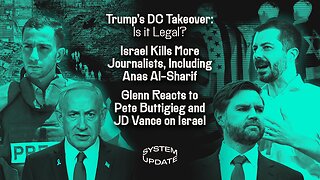 1:19:05
1:19:05
Glenn Greenwald
2 hours agoTrump's DC Takeover: Is it Legal? Israel Kills More Journalists, Including Anas al-Sharif; Glenn Reacts to Pete Buttigieg and JD Vance on Israel | SYSTEM UPDATE #501
63.4K55 -
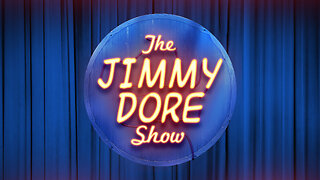 LIVE
LIVE
The Jimmy Dore Show
3 hours agoTrump CRACKS DOWN On Crime & Homelessness in DC! Israel Massacres Al Jazeera Journalists in Gaza!
8,407 watching -
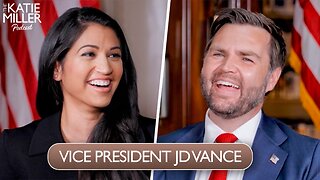 44:40
44:40
Katie Miller Pod
2 hours ago $0.84 earnedEpisode 1 - Vice President JD Vance | The Katie Miller Podcast
8.03K3 -
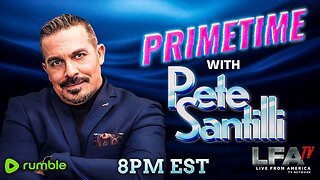 LIVE
LIVE
LFA TV
1 day agoLFA TV ALL DAY STREAM - MONDAY 8/11/25
854 watching -
 DVR
DVR
RiftTV
4 hours agoBREAKING: Trump FEDERALIZES D.C. To RESTORE Law & Order | The Rift | Ryan Matta, Olivia Krolczyk + Braeden Sorbo
11.3K1 -
 LIVE
LIVE
megimu32
2 hours agoOTS: Breakfast Nostalgia + Blind Chocolate Cereal Showdown… LIVE! 🍫🥣
118 watching -
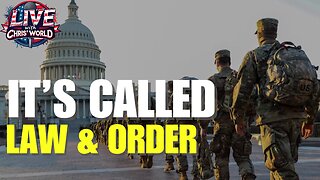 LIVE
LIVE
LIVE WITH CHRIS'WORLD
9 hours agoLIVE WITH CHRIS’WORLD - It’s Called LAW & ORDER
175 watching -
 11:07
11:07
AlaskanBallistics
1 day agoBreek-Lok Quick Detach Hub Mount and Flash Hider System Review
2.92K -
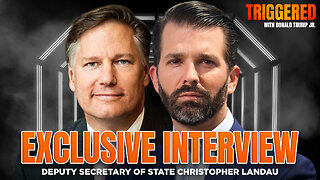 57:44
57:44
Donald Trump Jr.
6 hours agoExclusive Interview with Deputy Secretary of State Chris Landau | Triggered Ep266
92K39 -
 58:40
58:40
BonginoReport
10 hours agoModern Dating Woes & How To Resist Temptation w/ Tilly Dillehay - Hayley Caronia (Ep.109)
31.9K13